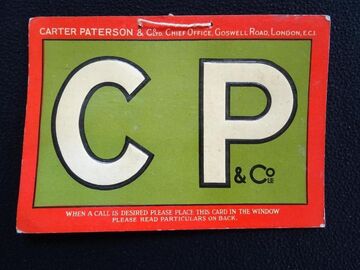Pickfords
Shipping Company
Pickfords is a moving company based in the United Kingdom, part of Pickfords Move Management Ltd.
The business is believed to have been founded in the 17th century, making it one of the UK's oldest functioning companies, although the similar Shore Porters Society was founded earlier. The earliest record is of a William Pickford, a carrier who worked south of Manchester in 1630. In 1646, a north-country yeoman by the name of Thomas Pickford had his lands confiscated by Parliament for gun-running and supporting the Cavaliers during the English Civil War.
Subject ID: 5877
MorePickfords is a moving company based in the United Kingdom, part of Pickfords Move Management Ltd.
The business is believed to have been founded in the 17th century, making it one of the UK's oldest functioning companies, although the similar Shore Porters Society was founded earlier. The earliest record is of a William Pickford, a carrier who worked south of Manchester in 1630. In 1646, a north-country yeoman by the name of Thomas Pickford had his lands confiscated by Parliament for gun-running and supporting the Cavaliers during the English Civil War.
Today, Pickfords has branches throughout the UK and Ireland. The company provides a complete portfolio of services to consumers and businesses including moving within the UK, moving to Europe and further overseas, business moving, transition and project management, employee moving services, small moves and packing materials.
Pickfords Removals (South Africa) operates independently from Pickfords UK with branches located in the cities of Bloemfontein, Cape Town, Durban, Johannesburg, Port Elizabeth and Pretoria. Additional sales offices are based throughout the country. Both Pickfords UK and Pickfords South Africa form part of the Allied International Moving Network.
In the 20th century, the company switched to road haulage. During this time it formed a rivalry with fellow hauliers Carter Paterson, with whom (amongst others) they merged in 1912, although both kept their separate names.
Subject ID: 5877
Subject ID: 5877
